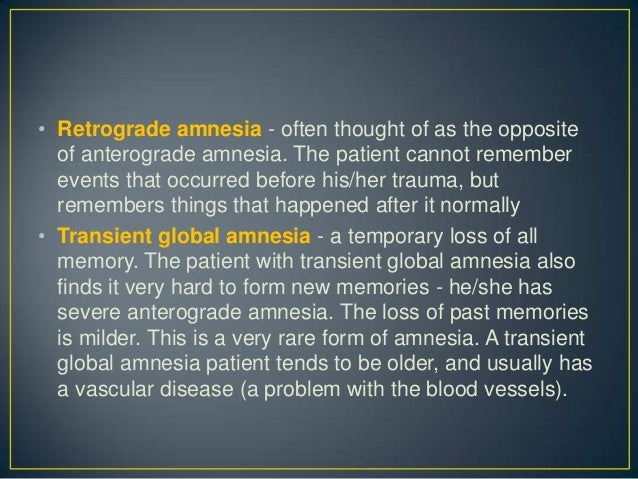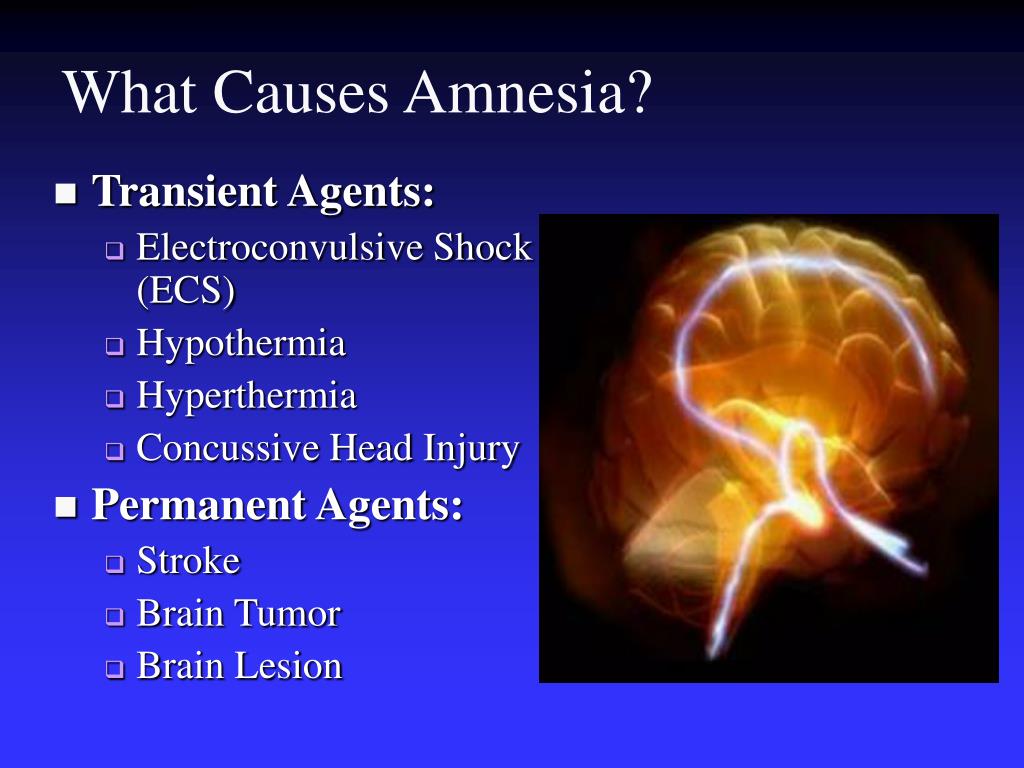
Other symptoms of Amnesia may include an abnormality in the brain region. However, it can be less stressful if you have friends and family who understand the condition.Ĭertain types of Amnesia are associated with dizziness, headaches, and nausea.

It can be scary it can make you feel isolated and even angry. Symptoms of Amnesia usually vary from person to person, and the type of Amnesia one is suffering from. n after a few hours or a day or a year, depending on the severity of the infection. Luckily, memory can return after a few hours, a day or a year, depending on the severity of the infection. When this happens, a person can’t remember any information for a few seconds, but their non-declarative memory remains intact. This brain infection can affect the hippocampal region. The most common cause of Amnesia is a severe case of viral encephalitis. Other possible causes include a reduction in blood flow to the brain due to external reasons or the under-development of the brain in the prenatal stage of development. But the most common causes of Amnesia are infection, brain injury, and stroke. In addition, neurological conditions, vitamin deficiency, drugs, or emotional stress are various causes of Amnesia. Causes of AmnesiaĪmnesia is often associated with significant trauma, such as a car accident or abuse.

They may also have limited memory of a certain location or time. Those with anterograde Amnesia may not remember a particular event. The resulting damage may impair your memory, or tend to have severe impairments in both anterograde and retrograde memory. In this condition, the patient temporarily loses memory, and the brain stops receiving the information it needs to function properly.Įxamining the surface, the exchange of electrical signals between neurons also gets disrupted. What is Amnesia?Īmnesia is a neurological condition that affects your ability to recall certain things, including declarative and non-declarative memories. And know which one is less severe and easy to manage. In this article, we will highlight the difference between Amnesia and Dementia, two mental conditions that resemble each other but are vastly different. Which side would you choose? The shallow one, right? Similarly, which mental condition would you like to suffer if given a choice? (No offence, we wish sound health for you) The less severe one, am I right? Imagine standing at the cliff of a mountain, and someone asks you to jump off the side.


 0 kommentar(er)
0 kommentar(er)
